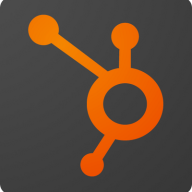

HubSpot Sales Hub and Salesforce Essentials are competing in the CRM market, each designed to streamline sales processes. User satisfaction with pricing and support often favors HubSpot Sales Hub, while Salesforce Essentials is preferred for its advanced features.
Features: HubSpot Sales Hub offers email tracking, deal management, and integration with marketing tools, ideal for marketing-to-sales alignment. Salesforce Essentials provides advanced lead and opportunity management with comprehensive reporting features, making it suitable for complex sales processes.
Room for Improvement: HubSpot Sales Hub could enhance its advanced reporting and analytics capabilities. Adding more features for large enterprises could make it more attractive. Integrating with a wider range of third-party applications could also expand its usability. Salesforce Essentials might benefit from simplifying its interface for non-technical users. Reducing initial setup complexity could improve user experience. Enhancing native integration with more marketing platforms could broaden its appeal.
Ease of Deployment and Customer Service: HubSpot Sales Hub is noted for a straightforward deployment, aided by its simplified setup process and accessible customer service. Salesforce Essentials offers ease of deployment with extensive training resources and robust support, ensuring users are well-guided through personalization and onboarding.
Pricing and ROI: HubSpot Sales Hub offers a freemium model that attracts budget-conscious small to medium businesses, promising a swift ROI. Salesforce Essentials, while more expensive upfront, justifies its cost with extensive features and scalability, leading to a higher long-term ROI for enterprises needing advanced sales tools.
Without it, we wouldn't be able to manage everything properly or strategically plan our sales strategy.
The ROI was always in a positive direction.
They consistently respond and provide solutions, though some limitations are inherent to the tool itself.
It is more difficult with the language in Portuguese, which complicates understanding other functions.
Their service and uptime is phenomenal.
Salesforce Essentials has excellent customer service.
I would evaluate their support and customer service with Salesforce Essentials as pretty decent, diligent, and to the point.
It is one of the most scalable systems available.
For instance, out of 10,000 API requests, approximately 10 might get missed with absolutely no record of them.
Salesforce Essentials has proven stable, with no downtime that affects my work.
The overall cost is relatively high compared to some alternatives available in the market.
It is a very potential software, but it is not much accessible for other players in the market.
Instead of requiring users to think about system navigation and clicking procedures, they can simply follow a workflow that guides them through the process.
Salesforce Essentials operates in a table format where the entire user interface is based on tables, more specifically pivot tables.
There are other competitors, like Zoho CRM, that offer similar features at a lower cost.
The sales component is somewhat expensive, making the overall cost higher compared to some other available options.
The cost of running Salesforce Essentials is significant.
The costs associated with Salesforce Essentials are substantial, which is a drawback compared to competitors who offer similar services for less.
The most important feature for us is the ability to plan workflows and integrate other systems manually, even without native connectivity.
The divisions for sales and the graphics are very customizable in HubSpot Sales Hub.
Their reporting and analytics features have a very significant impact on my company's operational efficiency.
Salesforce Essentials is excellent because it is one of the most flexible CRMs available.
It is very customizable to specific needs.
| Product | Market Share (%) |
|---|---|
| HubSpot Sales Hub | 1.0% |
| Salesforce Essentials | 0.6% |
| Other | 98.4% |


| Company Size | Count |
|---|---|
| Small Business | 14 |
| Midsize Enterprise | 4 |
| Large Enterprise | 3 |
| Company Size | Count |
|---|---|
| Small Business | 5 |
| Midsize Enterprise | 3 |
| Large Enterprise | 7 |
Powerful Sales Software That Grows With You
Track how deals are progressing, organize all sales activity in one place, and accelerate sales cycles to close more deals, faster.
Salesforce Essentials is a cloud-based CRM tool for businesses seeking flexible, scalable, and customizable solutions to enhance sales and customer support processes.
Designed for seamless integration across multiple channels, Salesforce Essentials includes Sales and Service Cloud to simplify sales tasks and customer management. It enhances finance, credit, and quality processes with user-friendly AI capabilities and predictive analytics. Despite its strengths, there is room for improvement in SAP integration, interface simplicity, and report generation. Cost-effectiveness and support for diverse languages are also potential upgrade areas. Businesses use this CRM solution for lead management, opportunity tracking, and automating sales workflows, transitioning from paper-based methods to digital efficiency.
What are the essential features of Salesforce Essentials?In the retail industry, businesses employ Salesforce Essentials for customer data management and transparency in order processing. Healthcare providers use it for patient engagement and streamlined communication. Financial services utilize it for billing management and compliance, harnessing automation tools for efficient data handling.
We monitor all CRM reviews to prevent fraudulent reviews and keep review quality high. We do not post reviews by company employees or direct competitors. We validate each review for authenticity via cross-reference with LinkedIn, and personal follow-up with the reviewer when necessary.